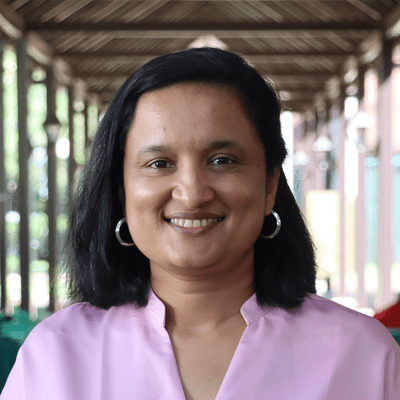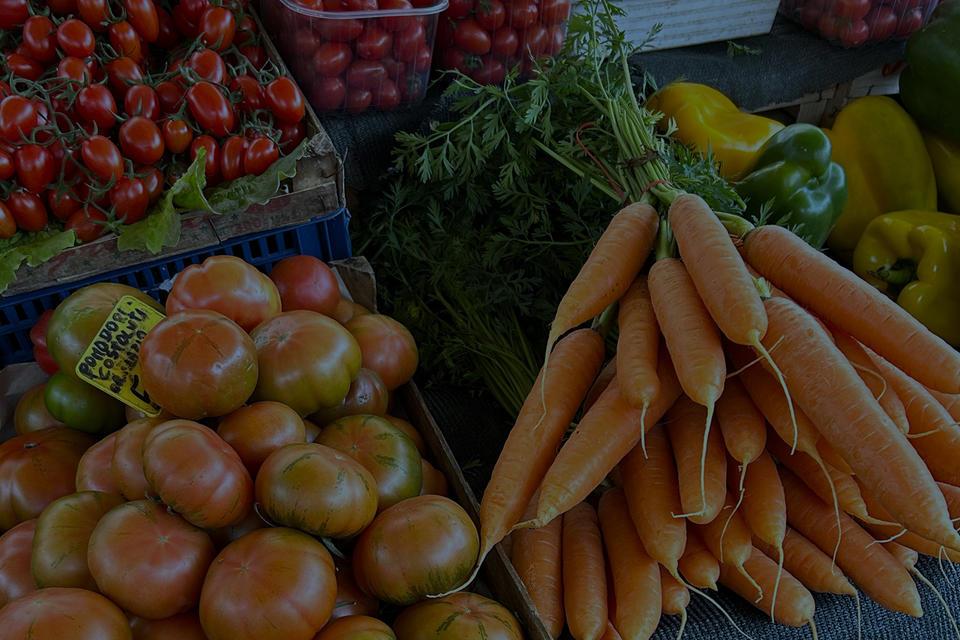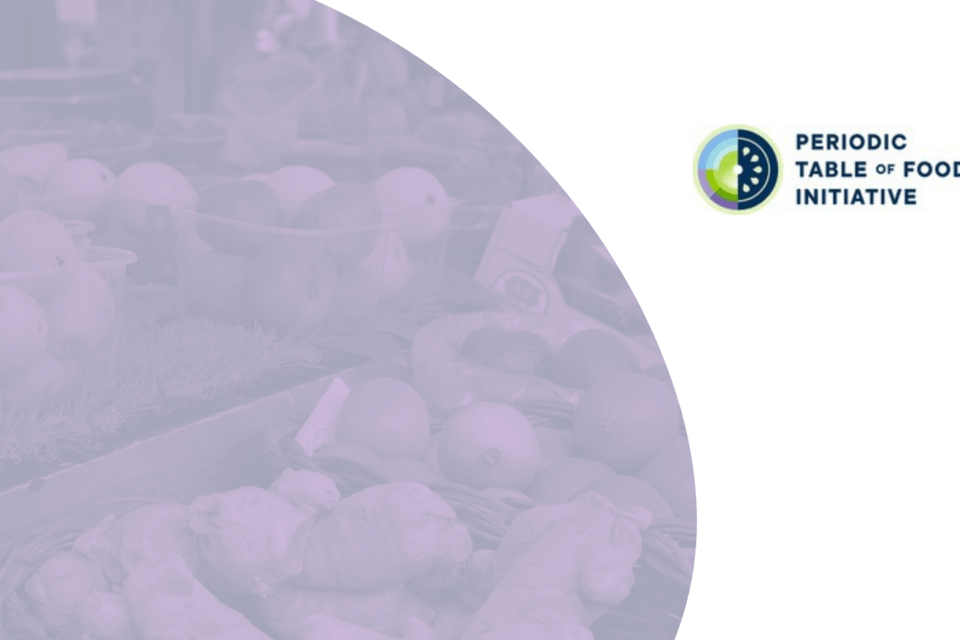Research Articles Know Your Food: Tools to Revolutionize Food Composition and why this Matters for People and the Planet

Three years of hard work and collaboration between many scientific partners has culminated in the release of a set of tools, data and training that will usher in a new frontier of understanding of what is in our food, and how this knowledge can be used to shape food systems that nourish people and the planet.
By: José Luis Urrea-Benítez, with inputs from Gina Kennedy and Maya Rajasekharan
At the heart of the Periodic Table of Food Initiative (PTFI) lies a simple yet profound concept: applying the principles of the periodic table - the cornerstone of chemistry - to the realm of food. Just as the periodic table organizes chemical elements based on their properties and interactions, the PTFI seeks to categorize and understand the biochemical components of nutritionally and culturally diverse foods in a systematic manner. From essential nutrients to bioactive compounds, every element of food plays a vital role in human health.
The Alliance of Bioversity International and CIAT, together with the American Heart Association, form the co-Secretariat for PTFI that leads this work, together with the Rockefeller Foundation. PTFI held a celebratory event of Food Diversity, Scientific Advances and Community Innovation where tools, data from 500 foods and training resources were made publicly available, last April 23-24 in New York.

“A great strength of the PTFI is the collaboration between international agriculture research and health research” said Roy Steiner, Senior Vice President, Food Initiative, Rockefeller Foundation.
Agricultural innovations and biodiversity are at the heart of research efforts of the Alliance, that is leading the way for PTFI on research, translation, and the interface of agriculture and food systems with the health and nutrition communities.
Together with its partners, the Alliance led the analysis exposing critical gap in our scientific understanding of the foods we eat. A publication in Nature Food unveiled a meticulously curated list of 1,650 nutritionally and culturally diverse foods for biochemical analysis, of which more than 1,000 are not included in any globally recognized food composition database, which are typically used to issue dietary guidelines and to guide agricultural policies.
“This represents a breakthrough in science and our understanding of food. Having a connection between agriculture and nutrition is wonderful. Biodiversification and diversification of our diet is a must.” Ismahane Elouafi, Executive Managing Director, CGIAR.

The Alliance has led the way to establish the protocols used to sample foods and define the set of standardized metadata, such as the location and date of sample collection, species and variety, and cultivar or breed that will accompany all foods in the PTFI database. Alliance scientists collaborated with the broader agricultural and food ontology communities to design the system, ensuring that PTFI data adheres to the principles of being “FAIR”. In the future, there are aspirations to incorporate optional modules that can link agricultural practices, food culture and climate variables to the core data on food composition. This will help researchers answer questions such as the impact of production and processing methods on nutritional content, and the influence of changing climates on the nutritional quality of our food.
Alliance scientists are also guiding project partners on the implementation of The Nagoya Protocol on Access and Benefit-sharing (ABS): an internationally recognized principle that refers to countries’ sovereign rights over their biological resources, the capacity to regulate the access to them in their territories, and the obligations to share the benefits with the providing countries in a fair and equitable manner. The guidance involves extensive collaboration with national biodiversity authorities to ensure compliance with national laws and policies that regulate the access to genetic and biological resources and related information, including digital sequence information on genetic resources (DSI) and the equitable sharing of benefits as outlined in the Convention on Biological Diversity (CBD) and the International Treaty on Plant Genetic Resources for Food and Agriculture.

Photo Credit: Danielle Nierenberg, Food Tank
“This is one of the first projects to work on an international scale to combine the collection of information on food composition with ABS considerations. We think this is the right framework for respecting the stewards of the world’s biodiversity and to share the benefits of the knowledge generated with the communities who safeguard these food resources.” Gina Kennedy, Principal Scientist at the Alliance of Bioversity International and CIAT and Director of Research, Translation and Impact for the PTFI
As the project progresses into its next phase, efforts are underway to explore the implementation of 'local context notifications' and 'labels' on foods within the database. These notifications and labels would serve as indicators when permissions for studying these foods have been granted by local and national authorities, directing users to knowledge holders who can provide further insights into the utilization and promotion of these foods.
“From the beginning, the PTFI took a very proactive and broad approach to ABS that goes beyond monetary benefits. That includes partnerships, capacity building through the capacity strengthening platform (Food EDU) and the Good Food Fellows information sharing and technology transfer.” Maya Rajasekharan, Managing Director of Africa at the Alliance

Photo Credit: Food Tank

Alliance participants to the Food Diversity, Scientific Advances and Community Innovation event held in New York, on April 24-25, 2024.

Maya Rajasekharan
Managing Director, AfricaA global food and nutrition research network
PTFI established a total of nine “Centers of Excellence” around the world, selecting key partners to collaborate closely with the project using PTFI’s tools to generate data on foods from their regions. One of them is iÓmicas at the Javeriana University in Colombia, that is currently undertaking a deep exploration of the composition of 45 accessions of common beans selected for diversity in seed coat color and iron and zinc content, provided by the Alliance's Future Seeds genebank. The Alliance hopes to forge partnerships with other CGIAR genebanks and PTFI Centers of Excellence to provide comprehensive profiles of the full biomolecular composition of these treasure troves of our planetary agrobiodiversity, allowing us to move towards a more sustainable and nourishing future.



